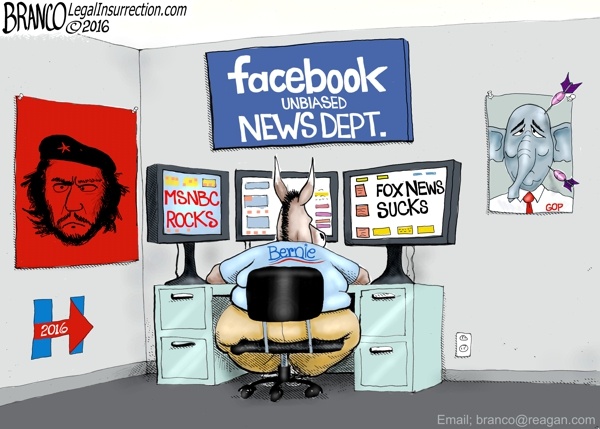 When you next get on a Melbourne tram, you will be comforted to know that it is being powered by the sun. Just don’t bother to look for the solar panels on the roof; let’s not forget that the trams are powered by electricity.
When you next get on a Melbourne tram, you will be comforted to know that it is being powered by the sun. Just don’t bother to look for the solar panels on the roof; let’s not forget that the trams are powered by electricity.
But in what must be one of the biggest political blundering bluffs used by any government, the Victorian government will throw $150 million at a solar power operator and try to get away with the lie that trams are now being run by the sun.
Andrews and his completely incompetent and out-of-her-depth energy minister, Lily D’Ambrosio (no doubt, elected because of her factional links, not her ability) are now really taking the piss.
And the worst thing is the Victorian opposition is so weak, that Guy and his mates are not even landing a glove on the socialists running the state.
Mind you, the $150 million bill won’t be sent to public transport users; no, that will be covered by the long suffering tax payer.
Expect more of this reverse auction stuff; it is just a fancy term for doling out many millions of dollars of taxpayer money to renewable energy rent-seekers and creating a veneer that the money is being used for worthy purposes; in this case sun run trams.
And bear in mind these subsidies are in addition to the ones the operator will receive from the RET through the certificates.
All this stuff makes Bernie Madoff look quite tame and he was at least only ripping off his own clients rather than taxpayers.
Victorian taxpayers to fund first ‘solar trams’
Victorian taxpayers will partially fund the building of a $150 million solar plant to be used to power Melbourne’s tram network.
Victorian taxpayers will partially fund a $150 million solar plant to power Melbourne’s tram network.
Victorian Energy Minister Lily D’Ambrosio yesterday doubled down on the government’s controversial renewable energy targets as she announced that a 75 megawatt solar plant would be built in regional Victoria.
She would not say how much the government would contribute to the project, which will be partially funded by the private sector.
She boasted a “world first” policy would see Melbourne’s entire tram network run on solar power, although she acknowledged this was “notional” and that the energy would flow into the broader system but the government would buy enough renewable certificates to cover the tram system’s needs.
“We will see that the biggest tram network in the world will soon be run by solar power, solar power plants built right here in Victoria,” Ms D’Ambrosio said. “There will be 410 solar trams running right through that network; this is a world first.”
“We will actually buy more than enough energy to power our entire tram network, so yes it is a notional process but effectively we are growing our renewable energy more than matching the needs of our tram network.”
The move is part of Victoria’s controversial renewables target of 40 per cent by 2025, climbing to net-zero emissions by the middle of the century. A tender to build the solar plants in regional Victoria will be run in the first half of the year, with construction to be completed by the end of 2018. The winning bidder will pay for part of the cost with the government to pay for the shortfall.
“The (government’s contribution) will be totally borne by the Victorian state budget, we are not going to be disclosing any figure now,” Ms D’Ambrosio said.
“We intend to get the best price possible for the taxpayer and that’s why we won’t be disclosing the amount of money the state government will be putting aside, but effectively we are putting aside money from the budget to be able to more than cover the cost of building these new solar plants.”
The Victorian renewables targets have been savaged as too ambitious by the federal government and are partially blamed for the closure of the Hazelwood brown coal plant, increasing household power bills by about 10 per cent. The government’s moratorium on gas exploration has also been blamed for increasing power prices. Ms D’Ambrosio yesterday pitched the solar plant on the heartland themes of jobs and lower power prices. Construction of the solar plant will create 300 regional Victorian jobs, with the government not set on a location, although it would probably be in the state’s northwest.
“The world is moving to clean energy, we made a commitment as a government, we continue to uphold that commitment to grow renewable energy,” she said.
“We’ve got renewable energy targets and we are very proud of them because we know that people want more renewable energy, we know that the more renewable energy that comes into the system will put downward pressure on electricity prices and create thousands of jobs.”
Opposition energy spokesman David Southwick said the announcement did nothing to lower electricity prices. “Victoria has lost 25 per cent of its electricity supply after Daniel Andrews whacked the industry with a $252m tax forcing the closure of Hazelwood.”

 When you next get on a Melbourne tram, you will be comforted to know that it is being powered by the sun. Just don’t bother to look for the solar panels on the roof; let’s not forget that the trams are powered by electricity.
When you next get on a Melbourne tram, you will be comforted to know that it is being powered by the sun. Just don’t bother to look for the solar panels on the roof; let’s not forget that the trams are powered by electricity.









